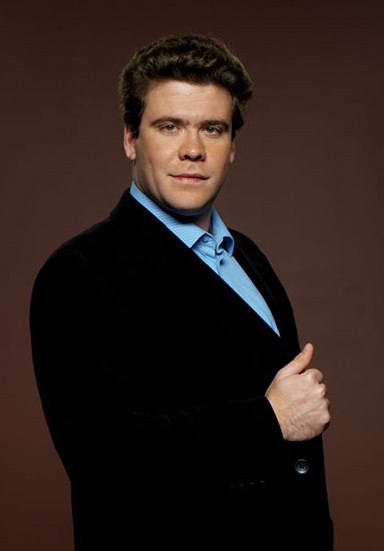With a muddled Matsuev, Mariinsky’s Rachmaninoff program provides mixed rewards

Denis Matsuev performed Rachmainoff’s Piano Concerto No. 3 with Valery Gergiev and the Mariinsky Orchestra Tuesday night at Carnegie Hall.
Valery Gergiev’s schedule just got a little easier. For the past two weeks, he has been leading the Mariinsky Orchestra on a whirlwind tour of North America, presenting concerts entirely of Russian music in Chicago, Toronto, Montreal, and Washington, in between performances of The Nose and Eugene Onegin at the Met. He finally wrapped up the Mariinsky trip on Tuesday with a Rachmaninoff program at Carnegie Hall.
Denis Matsuev led off the evening with Piano Concerto No. 3. The opening bars lacked their requisite mystery, but the interpretation was certainly mystifying thereafter. One could hardly hear the trajectory of the concerto, as his playing was unclear, lacking in purpose and direction.
There were serious ensemble problems throughout the first movement, mostly stemming from Matsuev’s passagework, which was so muddled as to be nearly impossible for either audience or conductor to follow. Distinct notes were not very clear and he played with considerable rubato, so that where the beat would eventually land was anyone’s guess. He played the ossia cadenza, the version with the chordal opening. The writing here is spacious, but Matsuev gave it little room to breathe, playing heavily and rushing along.
Through it all, Gergiev did a superb job of shaping the accompaniment, and at the opening of the second movement he brought out dark-chocolate tone from his strings. The moment of clarity, though, was shattered yet again when Matsuev entered. Even in the slow movement he seemed to pay very little attention to his balancing, as it was impossible to tell his right hand from his left just by listening. This can sometimes be a good thing, but here it meant that both hands were combining to form one jumbled soup. The finale, in spite of some glorious sounds coming from the strings, was joyless, not waking up until the final flourish—and even that was a bit of a stumble-through.
It’s hard, though, not to get asked for an encore or two after this concerto, and Matsuev complied with Rachmaninoff’s Étude-Tableau, Op. 39 No. 2 in A minor. Here he displayed real artistry, with sensitivity to color, phrasing, and touch. A bit of that would have gone a long way towards a more compelling concerto. His second encore was a bit of spontaneous jazz, played with flair.
Following the intermission, Gergiev and the Mariinsky Orchestra gave a thorough and convincing account of the Symphonic Dances. Written for another orchestra with intense strings—the Philadelphia Orchestra of 1940—the piece proved an excellent fit for the Mariinsky ensemble, who played with lush warmth. The first dance, in complete contrast to the concerto, was precise and fabulously lucid. This was not a rigid precision, however—there was also searching freedom, and lyrical sensitivity.
The strongest of the three dances was the sorrowful, ruefully nostalgic waltz. Here the violins shone again, showing off their ability to maintain full-bodied focus even in their upper range. Every section of the strings, in fact, was strong, and Gergiev brought them together in a perfectly balanced mesh—thick but not muddy.
The last dance, initially marked “lento assai,” was nonetheless impish from the beginning. There was a hint of darkness even in the lyrical woodwind line at the opening, and the break-neck entrance of the strings thrilled. Mariinsky’s powerful percussion section was not exactly featured in Tuesday’s concert, but they did their bit in this dance, providing glitter over the woodwinds and suitable thunder at the end.
That would have been a fine close to the program, but Gergiev chose to present an encore, the Overture to Lohengrin. Leaving aside the fact that Wagner seemed out of place, the performance was surprisingly sloppy. The orchestra was out of sync at the beginning and did not really come together until the entrance of the brass much later. Heavy portamento and wobbly vibrato in the violins detracted from the shimmering quality of the piece.







Posted Nov 03, 2013 at 9:02 pm by Julia Ash
I was extremely disappointed with both pieces, the piano concerto and the dances. Both were devoid of the beauty they are known for. I believe it is due to the orchestra and the pianist combination and poor interpretation by both. Though I usually like Matsuev’s energy, he is as far from Horowitz as Earth from Mars. This was one of the worst 3rd piano concerto’s performances I heard. Too bad!